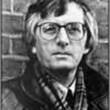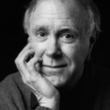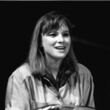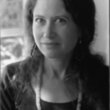The blessing: a memoir
Description
More Details
Similar Titles From NoveList
Similar Authors From NoveList
Published Reviews
Booklist Review
Where do writers come from? What coalescence of temperament, inheritance, and circumstance ignites an all-consuming love for language and the need for literary expression? Both poet Orr and Harrison, author of Legends of the Fall and The Road Home among many other works, reflect on how childhood tragedies and a profound involvement with nature gave rise to their passion for writing. Michigan born and bred, Harrison has always been happiest out in the natural world where as a boy he took what comfort he could find after he was blinded in his left eye at age seven. This brutal loss set his life pendulum swinging sharply between trauma and beatitude, and Harrison writes with a spanning energy and bemused self-deprecation about his realization at age 16 that he wanted to be a writer, his nomadic adventures (he used to hitchhike with a box containing his typewriter and books by Faulkner, Dostoyevsky, and Rimbaud), paralyzing depressions, early and enduring marriage, parenthood, and eventual and resounding artistic breakthroughs, first as a poet, then as a fiction writer embraced, to his surprise, by Hollywood. A mesmerizing storyteller and down-to-earth philosophizer, Harrison explicates his "seven obsessions," which include alcohol, strip clubs, hunting, fishing, and dogs, and offers compelling ruminations on the splendor of nature and the crimes of man, the mysteries of spirit and the revelations of art. So dire was Orr's childhood, when he read the Greek tragedians for the first time he accepted all the bloody feuds and multigenerational curses as "matter-of-fact family dynamics." The anxious middle son of a wildly irresponsible father (a country doctor addicted to amphetamines and risk) and an emotionally repressed mother, Orr, at age 12, accidentally shot to death his younger brother, Peter. How does one live after such a shattering tragedy? How does one write about it? Orr has distilled the anguish of his youth right down to its holy bones in a breathtaking chronicle of long-term shock and the arduous road to expiation. In each poemlike chapter, tension, sorrow, and darkness give way to the mystical beauty of metaphor as Orr struggles to make sense of yet another horror, including his mother's death in Haiti and his violent experiences as a civil rights worker in the Deep South. Everywhere young Orr turned, he confronted the worst of humanity and the chilling sense of a world without soul until he found poetry, the thread, Orr writes, that leads us out of the labyrinth of despair and into the light. --Donna Seaman
Publisher's Weekly Review
Orr's gripping chronicle of his troubled boyhood is alternately self-conscious, moving and revelatory. When he was a boy growing up in New York's Hudson River valley, Gregory accidentally shot and killed his younger brother Peter during a hunting excursion with their father, a philandering, amphetamine-addicted country doctor. Now in his fifties, Orr examines the corrosive effect of that loss on his parents' marriage, the divine purpose of such loss, his destiny and the reason for his own survival amid a series of misadventures, which include the family's sudden relocation to rural Haiti and Orr's harrowing participation in civil rights activities in Mississippi in 1965. Upon Orr's return from the Deep South, where he was imprisoned by local authorities, his high school English teacher took him for a walk through the David Smith fields near Lake George. Smith, the great American sculptor who had just died in a car accident, filled the fields in Bolton Landing, N.Y., with gigantic metal sculptures. Orr saw in them images of his own "martyr's cross... alchemized and shining, metamorphosed... into a hundred expressive shapes.... Here was my blessing." And there, a writer was born. Orr's understanding of the tragic events of his life through the prism of art allows him to find serenity and stability (a well-published poet, Orr currently edits the Virginia Quarterly Review). One can only wonder what the next installment of Orr's life will look like on paper, for this one never fails to entertain, mystify and surprise. (Sept.) Forecast: As an independent, Council Oak may not have the resources to mount a major advertising and promotional campaign, other than campus and bookstore readings and an author tour. But strong reviews and word-of-mouth might make the difference in getting this book the attention it deserves. Look for an interview with Orr in a September issue of PW. (c) Copyright PWxyz, LLC. All rights reserved
Library Journal Review
An astounding memoir saturated with themes of death, shame, and guilt, The Blessing focuses on the six years in Orr's life that most affected him and his evolution as a poet. From the earliest chapters, which detail the author's 12th year and the events leading to his accidental shooting of his younger brother, to his later search for meaning and his participation in the Civil Rights Movement, Orr's psychological and emotional honesty is moving. It is his realization that art can be immortal that compels him to reach out of his misery-induced isolation to connect with the world and find meaning. Poetry as Survival reiterates the themes of Orr's memoir on a less personal and more scholarly level. Here he explores the function of poetry as a method for transcending pain and creating order out of the chaos of life. The scope of the discussion of poetry, with analysis of the works of Keats, Dickinson, and Whitman as well as ancient Egyptian poems and Inuit songs, is broad and is peppered with psychological theory. Well researched and fluidly written, this work may prove difficult for the casual reader but is essential for all academic collections. The Blessing is highly recommended for all libraries.-Paolina Taglienti, New York (c) Copyright 2010. Library Journals LLC, a wholly owned subsidiary of Media Source, Inc. No redistribution permitted.
Kirkus Book Review
The inadvertent shooting death of his brother by poet Orr gives this memoir a godawful specific gravity and spurs the author's search for ways to live on. It was an accident, but Orr was at the trigger when a bullet killed his brother Peter. It would shred any web of life's meaning that Orr, then 12, might have been weaving as a young man. No one was there to help him knit his life back together, or to hold and forgive him. His parents were too remote, an already unhappy mother and an amphetamine-powered father who never spoke of the incident. The act was absolute and ineradicable, and Orr dropped into a terrible, desolate free fall. Acknowledgement and forgiveness wouldn't be forthcoming-ever-and Orr was left with no map to guide him through his grief and shame. More misery follows: his father leaving home, his mother dying of an infection while the family is in Haiti, the appearance of the dreaded Inga, his father's girlfriend, in the Orr household. Trying to come to terms with the spiky wheel of fate, Orr has the good luck to become rapt by poetry ("I was enthralled by the possibility of making my own paths out of language") to create his own world. He also flirts with the idea of martyrdom, exiting his torment and confusion as a Freedom Rider, and very nearly gets his wish. As dreadful as is his brutalization in the South, Orr emerges with a renewed respect for living, but it isn't until a reunion with a high school teacher who brings him to the ironworks of the then recently deceased sculptor David Smith that Orr makes a significant commitment against oblivion. Writing has sustained him, "words rhythmically compressed into meaning." Here, the old and new meanings of "blessing"-to sprinkle with blood, to confer spiritual power-harrowingly collide.
Booklist Reviews
Where do writers come from? What coalescence of temperament, inheritance, and circumstance ignites an all-consuming love for language and the need for literary expression? Poet Orr reflects on how childhood tragedies and a profound involvement with nature gave rise to their passion for writing.So dire was Orr's childhood, when he read the Greek tragedians for the first time he accepted all the bloody feuds and multigenerational curses as "matter-of-fact family dynamics." The anxious middle son of a wildly irresponsible father (a country doctor addicted to amphetamines and risk) and an emotionally repressed mother, Orr, at age 12, accidentally shot to death his younger brother, Peter. How does one live after such a shattering tragedy? How does one write about it? Orr has distilled the anguish of his youth right down to its holy bones in a breathtaking chronicle of long-term shock and the arduous road to expiation. In each poemlike chapter, tension, sorrow, and darkness give way to the mystical beauty of metaphor as Orr struggles to make sense of yet another horror, including his mother's death in Haiti and his violent experiences as a civil rights worker in the Deep South. Everywhere young Orr turned, he confronted the worst of humanity and the chilling sense of a world without soul until he found poetry, the thread, Orr writes, that leads us out of the labyrinth of despair and into the light. ((Reviewed October 15, 2002)) Copyright 2002 Booklist Reviews
Library Journal Reviews
An astounding memoir saturated with themes of death, shame, and guilt, The Blessing focuses on the six years in Orr's life that most affected him and his evolution as a poet. From the earliest chapters, which detail the author's 12th year and the events leading to his accidental shooting of his younger brother, tohis later search for meaning and his participation in the Civil Rights Movement, Orr's psychological and emotional honesty is moving. It is his realization that art can be immortal that compels him to reach out of his misery-induced isolation to connect with the world and find meaning. Poetry as Survival reiterates the themes of Orr's memoir on a less personal and more scholarly level. Here he explores the function of poetry as a method for transcending pain and creating order out of the chaos of life. The scope of the discussion of poetry, with analysis of the works of Keats, Dickinson, and Whitman as well as ancient Egyptian poems and Inuit songs, is broad and is peppered with psychological theory. Well researched and fluidly written, this work may prove difficult for the casual reader but is essential for all academic collections. The Blessing is highly recommended for all libraries.-Paolina Taglienti, New York Copyright 2002 Cahners Business Information.
Publishers Weekly Reviews
Orr's gripping chronicle of his troubled boyhood is alternately self-conscious, moving and revelatory. When he was a boy growing up in New York's Hudson River valley, Gregory accidentally shot and killed his younger brother Peter during a hunting excursion with their father, a philandering, amphetamine-addicted country doctor. Now in his fifties, Orr examines the corrosive effect of that loss on his parents' marriage, the divine purpose of such loss, his destiny and the reason for his own survival amid a series of misadventures, which include the family's sudden relocation to rural Haiti and Orr's harrowing participation in civil rights activities in Mississippi in 1965. Upon Orr's return from the Deep South, where he was imprisoned by local authorities, his high school English teacher took him for a walk through the David Smith fields near Lake George. Smith, the great American sculptor who had just died in a car accident, filled the fields in Bolton Landing, N.Y., with gigantic metal sculptures. Orr saw in them images of his own "martyr's cross... alchemized and shining, metamorphosed... into a hundred expressive shapes.... Here was my blessing." And there, a writer was born. Orr's understanding of the tragic events of his life through the prism of art allows him to find serenity and stability (a well-published poet, Orr currently edits the Virginia Quarterly Review). One can only wonder what the next installment of Orr's life will look like on paper, for this one never fails to entertain, mystify and surprise. (Sept.) Forecast: As an independent, Council Oak may not have the resources to mount a major advertising and promotional campaign, other than campus and bookstore readings and an author tour. But strong reviews and word-of-mouth might make the difference in getting this book the attention it deserves. Look for an interview with Orr in a September issue of PW. Copyright 2002 Cahners Business Information.





























